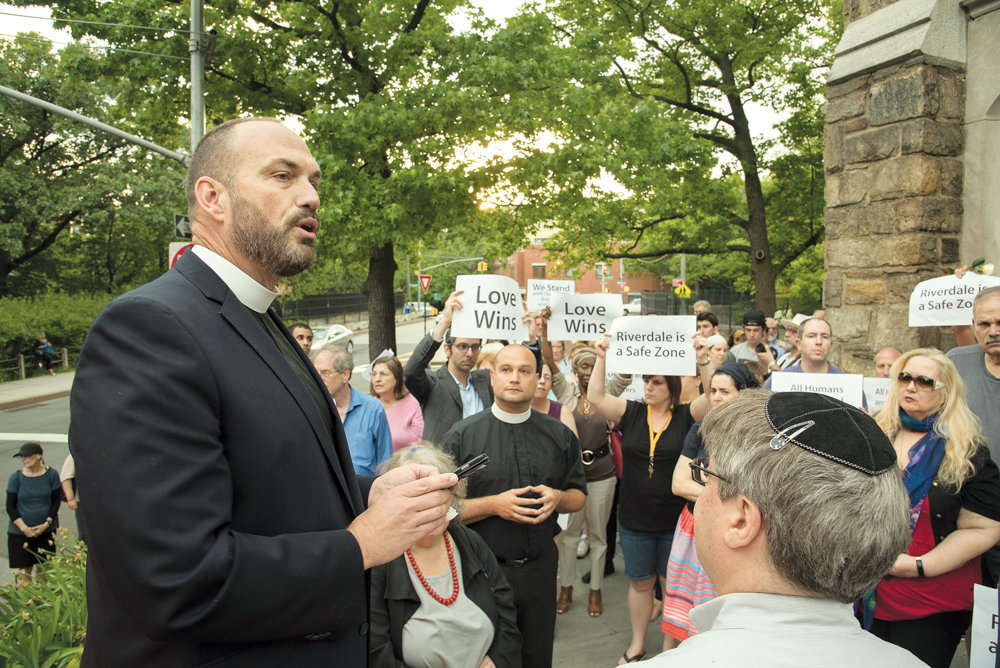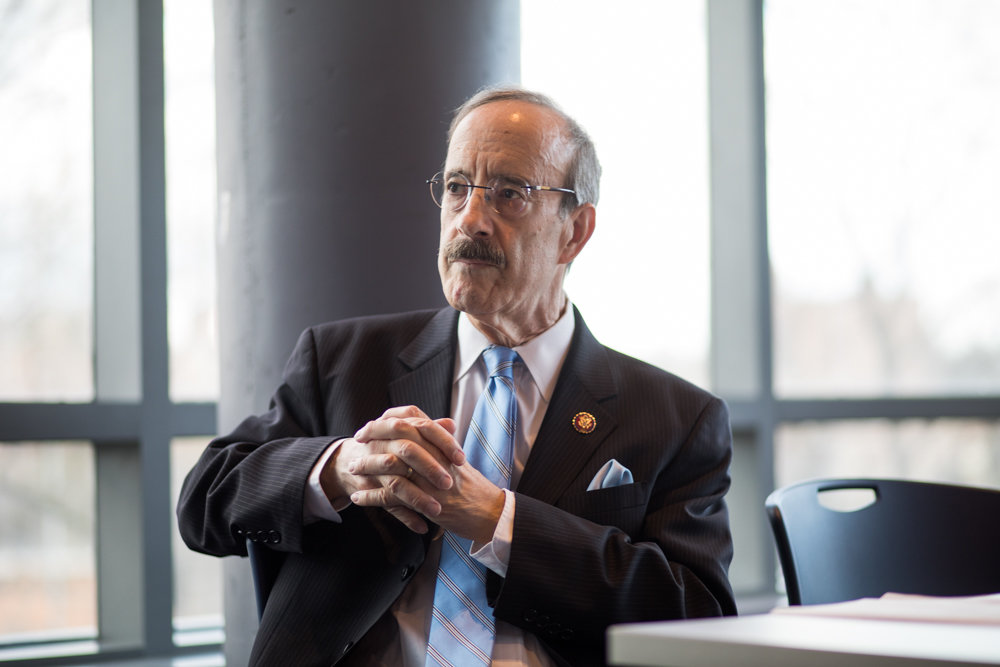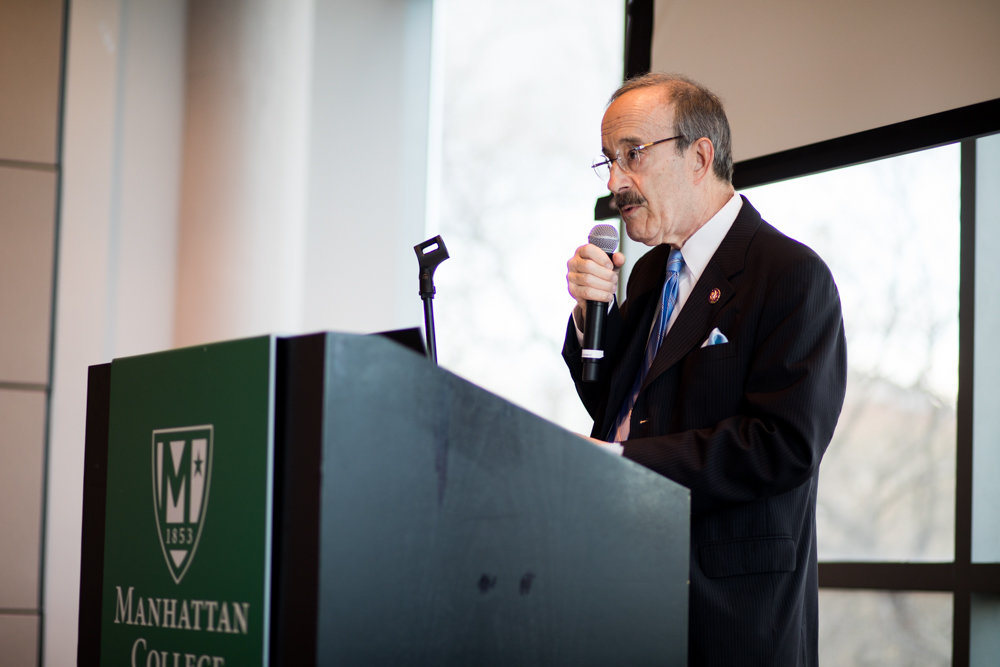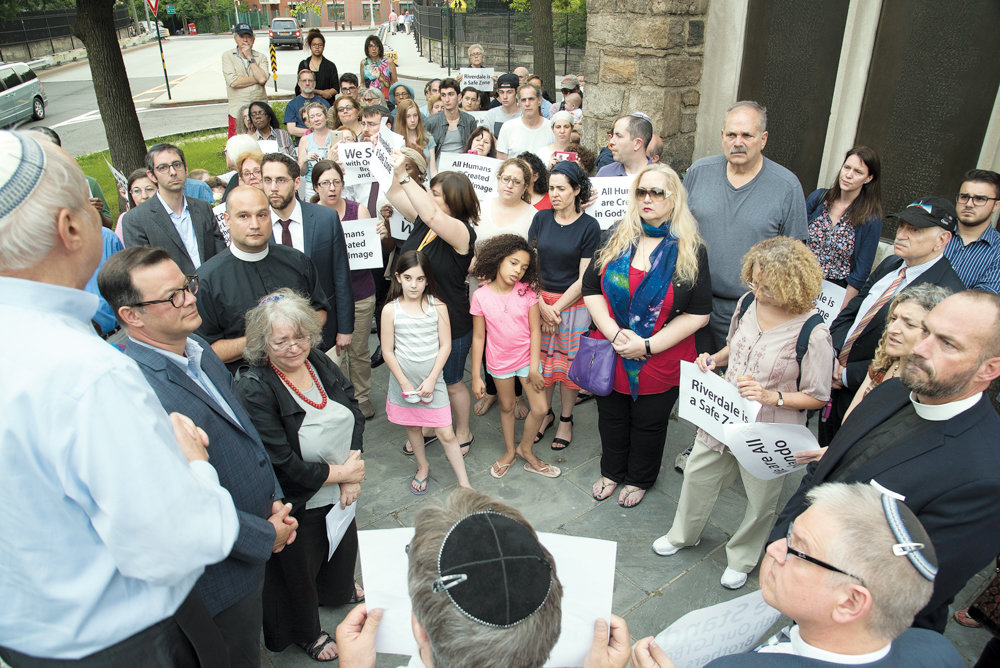Gun control complicated, contentious
What will it take to curb violence in world's only country where guns outnumber people?
It seems like an ever-repeating pattern: A mass shooting happens. Talk of gun reform is ubiquitous. Politicians make grand speeches about legislation to either limit gun access or to strengthen Second Amendment rights. Bills are written that die in committees, and the issue is untouched until the next tragedy.
Following the deaths of 31 people in mass shootings in Dayton, Ohio, and El Paso, Texas, two weeks ago, there is a renewed call for governmental action. The media now churns the same rhetoric seen after last year’s shooting in Parkland, Florida, the 2017 shooting in Las Vegas that killed 59 and injured 422, and the shooting that killed 49 at a nightclub in Orlando, Florida in 2016.
Why is it so hard to pass laws addressing gun violence?
U.S. Rep. Eliot Engel puts the fault squarely on the shoulders of Republicans.
“We have tried for years to pass commonsense gun legislation to protect the American people,” Engel said in an email to The Riverdale Press. “Three years ago, my House colleagues and I even held a sit-in protest on the House floor to try and get the Republicans to do something on gun violence prevention.”
Legislators in favor of stricter gun control have tried for years to pass such restrictions, Engel said, but all bills were ultimately blocked by the GOP. “They consistently refuse, no matter how grave the situation gets.”
A strong influence
The partisan rejection of gun reform is due to the National Rifle Association’s influence, according to Pamela Chasek, chair of Manhattan College’s political science department. What began as an organization for sportsmen and gun owners has since transformed into a political powerhouse that donates millions to candidates each year.
“It’s had a huge amount of influence over what goes on with gun control and Capitol Hill, largely because they have been successful at raising and bundling money for members of Congress,” Chasek said.
The NRA pushes members to donate to candidates the organization deems are against gun control legislation, Chasek said. Members also have responded well to the NRA’s rating of congressional members based upon their stance on gun ownership. Engel has boasted the “F” rating the NRA has consistently given him over the years.
Suppose there’s enough bipartisan federal support to pass legislation, there are still different ideas about what gun control should look like. For example, some — like Engel — support banning all semi-automatic assault weapons.
In fact, the House passed two pieces of bipartisan legislation this year calling for more background checks on gun sales, provide the FBI with adequate time to conduct background checks, and close what Engel has described as “dangerous loopholes.”
Both bills included background checks for purchases via the internet and gun shows, as well as a longer waiting period for people flagged on an instant check system.
The bills, however, failed to win Republican support.
There has been recent discussion about a “red flag” bill that would allow family or law enforcement to petition the courts to take firearms from people deemed at risk of hurting themselves or someone else. It’s a start, Engel said, but doesn’t go far enough for many.
“I believe waiting periods, and background checks specifically, are critical tools to have as it ensures an individual is allowed to have a firearm,” Engel said. “For example, in the case of Dylann Roof, he was able to obtain a firearm after the FBI was unable to determine in three business days if he should be able to buy one.”
Roof killed nine people at Emanuel African Methodist Episcopal Church in Charleston, South Carolina in 2015.
“Some may claim waiting periods and background checks infringe on personal freedoms,” Engel added, “but it is clear waiting periods and background checks are needed to ensure firearms do not fall into the wrong hands.”
Background checks only reveal whether the gun buyer has a criminal record, receiving benefits for a mental illness, or are otherwise flagged by the government. It does not, however, check a person’s biases or political leanings.
“It doesn’t include what you’ve been reading or posting online is white supremacist or anti-Semitic or anti-Latino or any of those things,” Chasek said. “That’s not going to come up.”
What our laws mean
To be effective, however, gun control legislation must hold up in court. The U.S. Constitution’s Second Amendment declares an individual’s right to keep and bear arms should not be infringed upon by the government. There has been much debate over the Founding Fathers’ precise meaning, however.
“Interestingly, it tends to be more of the conservatives who argue original intent” of Constitutional authors, Chasek said. “If you’re to argue original intent with regard to the Second Amendment, assault weapons didn’t exist in the 18th century. What were they talking about? They were talking about muskets, and they were talking about the need for militias in areas that couldn’t really have a standing army to protect them.”
Legislators also have talked about how far gun control should go. Engel supports measures that would ensure all sales and transfers of firearms include a background check, banning assault weapons and high-capacity ammunition magazines, and outlawing armor-piercing bullets.
“These are weapons and modifications that serve no practical use beyond killing,” Engel said. “An assault weapons ban is clearly effective.”
The federal government banned semi-automatic assault weapons in the United States in 1994. But lawmakers like Engel say there’s been a dramatic increase in mass shootings since that ban expired in 2004.
Studies conducted on mass shootings show a number of conflicting results, according to the fact-checking site Politifact. Some claim the number of mass shootings is up only slightly compared to the late 1980s and 1990s. What has changed noticeably is the number of fatalities occurring with each mass shooting because assault weapons are more powerful.
Other studies found that stricter gun laws didn’t do much to reduce gun violence. But they did find that in areas with more gun control, rates of suicide and accidental gun injury fell.
Regardless, hot on the heels of two mass shootings come the calls to pass laws to end gun violence.
“Let’s not forget,” Engel said, “the Second Amendment includes the words ‘well-regulated.’”















